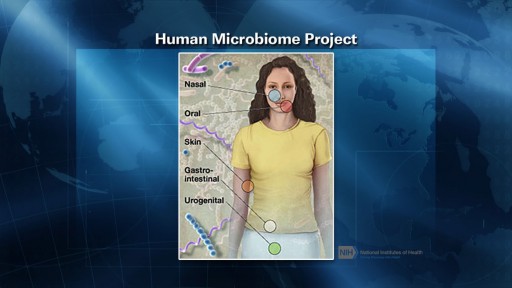Microbiome

A study that began during Expedition 35/36 is called Microbiome with its full name: Study of the Impact of Long-Term Space Travel on the Astronauts’ Microbiome. The study will investigate the impact of long duration space flight on both, the human immune system and an individual’s microbiome. The microbiome is the totality of microbes that live in and on the human body at any given time and influence human physiology. Some consider the microbiome to be a “newly discovered organ” due to its importance for human physiology. In fact, there are about 10 times more microbial cells than human cells in and on the human body, but the microbiome only accounts for about 200 grams.
The study involves extensive sample collection from subjects. Crew members will undergo sampling before, during and after their flight to ISS. Samples include nasal and oral samples, skin swabs and optional gastrointestinal samples. These will be taken from a total of nine astronauts before flight, around flight day 7 and 90 and at return minus 14 days as well as post flight. In addition, ISS surface samples are taken to better understand the microbial environment the crew members are subjected to.
ISS surface swabs will be collected from the crewmember’s sleeping quarters, exercise equipment, handheld microphone, Cupola knob, and two air vents located within frequently used ISS modules using a swabbing device. In addition, drinking water is sampled. Also, the crew member’s take saliva and blood samples to determine cortisol levels as well as cytokines for stress level analysis. Finally, crew members complete Environmental Health and Hygiene surveys to obtain metadata including astronaut health and hygiene.
Data from the microbiome investigation will help determine the effect that long duration space flight has on the crew member’s microbiome which in turn affects general health, immune response and overall physiology of the individual. For future long duration missions beyond Earth orbit, knowledge about these physiological effects is required to keep the crew members in optimal condition.
